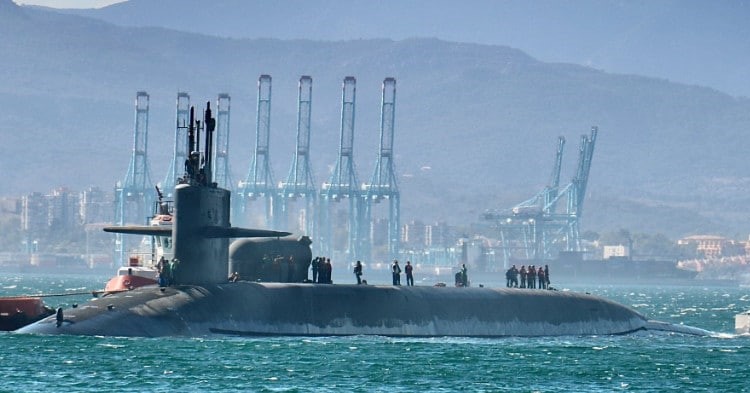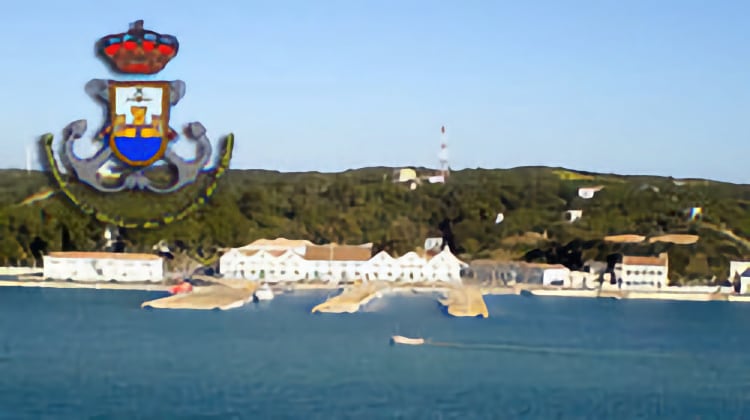Eduardo González
The Ministry of Foreign Affairs has refrained from reporting on the number of nuclear submarines circulating through the Strait of Gibraltar because it is “classified information” within the scope of NATO.
On February 5, the Popular Parliamentary Group of the Congress registered a written question in which it recalled that, “in a resolution issued by the Transparency Council, it has been established that the Ministry of Foreign Affairs must report on the significant number of nuclear submarines that have been circulating through the Strait of Gibraltar for decades.” Despite this resolution, the text continues, the Ministry has refused to respond to a “request processed by a private citizen” on this issue.
For this reason, the PP asks “what were the reasons why the data was denied, in the first instance, to the private citizen” and, “in view of the resolution of the Transparency Council”, if “the Ministry will proceed to facilitate the access to the requested information.”
Finally, the PP recalls that “Spain does not have a specific security and nuclear emergency plan for the Campo de Gibraltar area, as the United Kingdom does for Gibraltar”, so it asks the Government if it considers dangerous “the presence of nuclear submarines in the Campo de Gibraltar area” and “when the Government plans to prepare said specific plan.”
In its response, published on March 13, the Ministry of Foreign Affairs recalls that “all communications relating to the presence of nuclear submarines in Gibraltar, which is carried out through established NATO channels, is qualified information. , depending on the case, as confidential or reserved, which, according to Ministerial Order 76/2006, of May 19, which approves the information security policy of the Ministry of Defense, prevents its dissemination outside of channels classified as Confidential. /NATO Confidential”.
Furthermore, Foreign Affairs continues, “Law 9/1968 on official secrets, modified by Law 48/1978, establishes that information classified as Reserved is classified matter, subject to even more restrictive dissemination measures.” Finally, article one, paragraph three, of the Agreement on the Security of Information between the Parties to the North Atlantic Treaty, establishes that the Parties will refrain from using classified information “for purposes other than those established in the North Atlantic Treaty.” North Atlantic and in the decisions and resolutions relating to said Treaty.”
“All of this justifies and motivates the invocation of article 14, letters a, b and c, of Law 19/2013, of December 9, on Transparency, Access to Public Information and Good Government, as causes to reject the request for delivery of copy of information that enjoys the indicated classification”, concludes the response.
The environmental organization Verdemar-Ecologistas en Acción has repeatedly denounced the arrival at the military port of Gibraltar of British or American nuclear submarines for repair work that “endangers the population of the Strait of Gibraltar”, which is why it has claimed that the area “be free of nuclear-powered devices and other vessels that are authentic floating bombs.”
Specifically, according to the environmental organization, since the ‘HMS Tireless’ was repaired in 2000-2001, “more than a hundred submarines have passed, and many of them with problems”, as happened in 2016, when the Royal Navy’s nuclear submarine British HMS Ambush collided with a merchant ship in the Alboran Sea during training exercises.
“We do not have nor do we want a nuclear Emergency Plan, but for them to leave,” Verdemar warned in May 2023 on the occasion of the arrival at the port of Gibraltar of a new British nuclear-powered submarine, the ‘HMS Triumph’ to Gibraltar, which He had been “involved in an incident” at the Scottish base of Devenport, specifically, a cooling failure that “caused a nuclear accident alarm due to overheating of the submarine reactors.”
In November 2022, the US nuclear-powered submarine ‘USS Rhode Island’, of the Ohio class, arrived in Gibraltar, just a month after the ‘USS Florida’, which provoked complaints from the Spanish Government.







